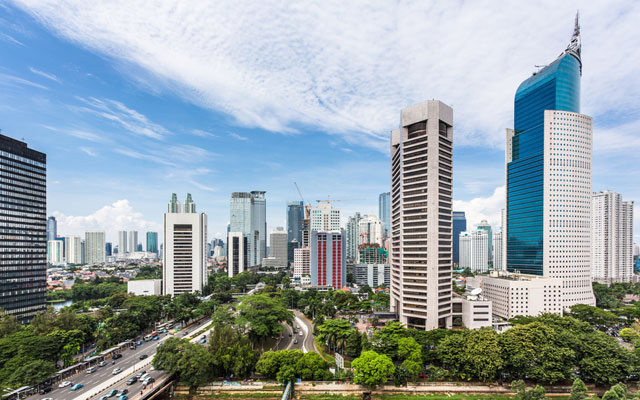Indonesia’s trade is eyeing a longer, bleak future as the government mulls over a plan to ban this year’s Idul Fitri mass homebound exodus to prevent the wider transmission of the rapidly-spreading virus, following a spike in the number of infected cases and a rising death toll in the country.
Ramadan is set to take place from April 23 to May 23, followed by the Islamic holiday on May 24 and 25.

This Idul Fitri holiday was expected to see some 20 million people travel to their places of origin, resulting in a massive stream of urbanites to rural communities, according to a report by The Jakarta Post.
As of March 31, the country has reported 1,528 confirmed cases with 136 fatalities, the highest death toll in South-east Asia. As Jakarta topped other affected cities with 747 cases and 83 deaths, the capital is increasingly considered the epicentre of Indonesia’s coronavirus outbreak.
As such, the Transportation Ministry plans to prohibit vehicles from leaving Greater Jakarta, which includes Bogor, Depok, and Bekasi in West Java, and Tangerang in Banten, and heading further to its neighbouring provinces of Central and East Java. The office will also reduce the passenger quota of flights by up to 50 per cent.
Meanwhile, the central government is formulating a policy scheme, dubbed No Exodus, No Idul Fitri Vocation 2020, according to coordinating maritime affairs and investment minister Luhut Binsar Pandjaitan, who is also the acting transportation minister overseeing the annual mass exodus.
Military personnel will guard vital points, such as entrance of toll roads to limit access to vehicles.
“We have to consider a variety of scenarios for the safety and security of holiday exodus travellers and the entire (nation),” the minister said in a statement.
According to a survey conducted by his office, 66 per cent of respondents said that they will not take part in the Idul Fitri mass homebound exodus if it is banned by the government. Half of them said that they are “worried” about the virus while 48 per cent are “really worried”.
The survey findings back a proposed campaign directed at parents to help influence their children not to join the mass exodus, which also calls for an increase in the number of interesting TV programmes to entice people to stay at home, and the introduction of Internet access in rural areas.
It also calls for the closure of tourist destinations and intercity routes connecting affected cities as well as suspension of public transportation.
President Joko Widodo has urged Indonesians to stay at home and to ditch their plans to travel, as well as observe physical distancing to curb the spread of Covid-19.
The country is now in a state of emergency, which the government has extended until May 29.
Khairul Gumay, owner of Safa Tour, shared that the latest development has resulted in a wave of airfare cancellations by people in Greater Jakarta who were planning to go home during the Idul Fitri holiday.
He added that he had granted clients full refunds for outbound and domestic tour packages booked for the holiday, despite not being able to secure full refunds from airlines himself.
According to Khairul, there are still clients who are insistent about travelling abroad, such as to Dubai. In response, Khairul has chosen to pay them full refunds to discourage their trips.
He explained that despite the financial losses, allowing his clients to proceed with their travel plans could pose even bigger problems, such as them being unable to return to Indonesia or getting infected with the virus.
“Travel agents also have an educational role to play,” he said.
Khairul has stopped selling outbound packages from March to June, and has asked his staff to go on no-pay leave.
While Indonesia had earlier planned on targeting domestic travellers to keep the tourism industry afloat, Khairul said the closure of several tourist destinations in the country has made it impossible to encourage any domestic trips.
“We will probably start selling packages again in September, but people’s travel confidence might only return in December. So, 2020 looks set to be a difficult year overall,” he said.
AB Sadewa, corporate secretary of Panorama Destination, said his company is now reducing operational expenses and preparing travel packages for the rebound.
Sadewa expressed hopes that the government could step up efforts to curb the virus, such as spreading the message of physical distancing in the native language of Bahasa Indonesia, instead of English.
The sooner the virus is stemmed, the quicker the industry could recover, he said.
Amid the current challenging situation, both Sadewa and Khairul expressed hopes that the government would help the industry through income tax relaxation or tax deduction for operational costs such as employee salaries and electricity charges.




















